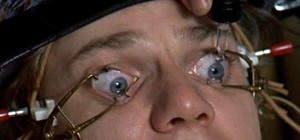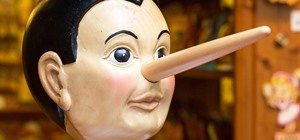Someone does't really like you. I don't know who or where they are, but they exist. If you want to change that, simply ask them to do you a favor.
This trick is known as the "Benjamin Franklin Effect." The idea is that when someone who views you unfavorably performs a favor for you, they will look upon their contradictory behavior and attempt to justify their action with the belief that they like you (at least a little).

"He that has once done you a kindness will be more ready to do you another than he whom you yourself have obliged." - Benjamin Franklin
It's All About Cognitive Dissonance
"But they already dislike me, how can I possibly ask them for a favor?"
Unless they completely loathe you, they'll probably do the favor. Maybe they think they'll get something in return? Maybe they want to make a scene and complain the whole way through? Whatever the motive, it doesn't matter. What makes this trick work is the end result—cognitive dissonance.
Cognitive dissonance is the mental stress we feel when we hold two contradictory beliefs, ideas, or values. It's an uncomfortable state that we subconsciously try to resolve, even if that means making up new beliefs.
For example, Aesop's Fable "The Fox and the Grapes" perfectly depicts the concept of cognitive dissonance. When the fox is unable to reach the grapes, it convinces itself that the grapes aren't even worth reaching and that they're probably not ripe anyway.
Enter Self-Perception Theory
Do your beliefs determine your actions, or do your actions determine your beliefs? The question has been answered in what psychologists call the "self-perception theory."
Self-perception theory claims that people develop their attitudes by observing their behaviors and deciding which attitudes must have caused them. Therefore, when you're trying to decide whether or not you like someone, you will probably consider whether or not you've done something for them, because after all, we wouldn't do something for someone we hate.
The Proof Is in the Science...
Still not convinced? Consider this ingenious study done by two psychologists at the University of Chicago in 1993.
Participants in the study were shown written Chinese characters. None of the participants knew Chinese, but they were asked to determine whether or not the characters had a "negative" or "positive" meaning. However, at the same time they were asked to either push down on the table or pull up on it. Sounds random, right?

The majority of the characters described as "positive" were rated so by people pulling on the table, while the majority or "negative" characters were rated so by people pushing on the table. Why? Because throughout our entire lives we've pulled positive things towards us and pushed negative things away. In the same way, we've always done things for people we like, and don't do things for people we dislike.
"We are what we pretend to be, so we must be careful about what we pretend to be." – Kurt Vonnegut
Just updated your iPhone? You'll find new emoji, enhanced security, podcast transcripts, Apple Cash virtual numbers, and other useful features. There are even new additions hidden within Safari. Find out what's new and changed on your iPhone with the iOS 17.4 update.























3 Comments
Cool article! Love reading on this subject matter.
Definitely! Self-perception theory is so interesting and has so many applications.
What favour should I ask them? I'm in a boarding they are there with me but I don't know what to ask them and on top of that how will they be friends with me with a favour cause I'm too introverted….
Share Your Thoughts